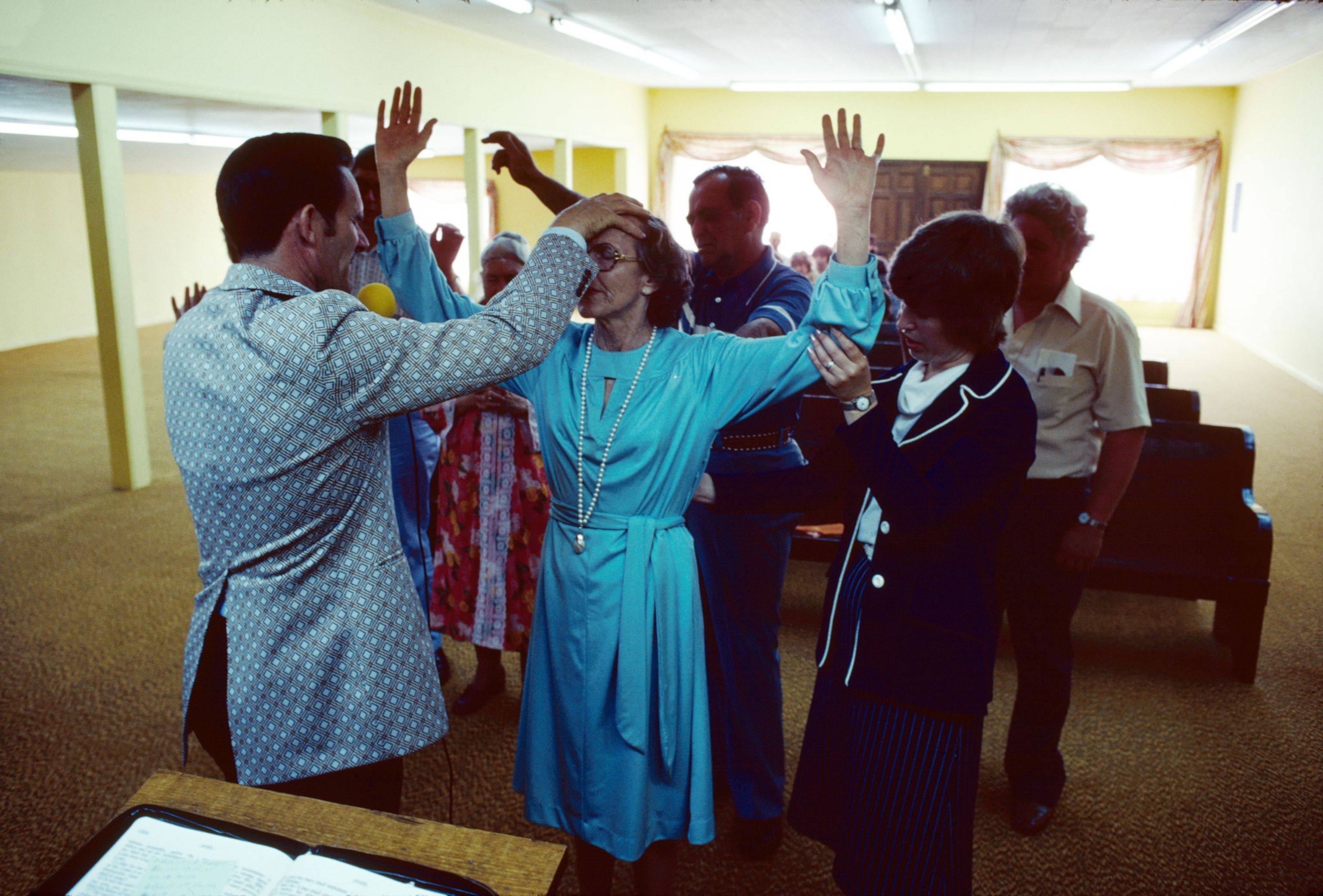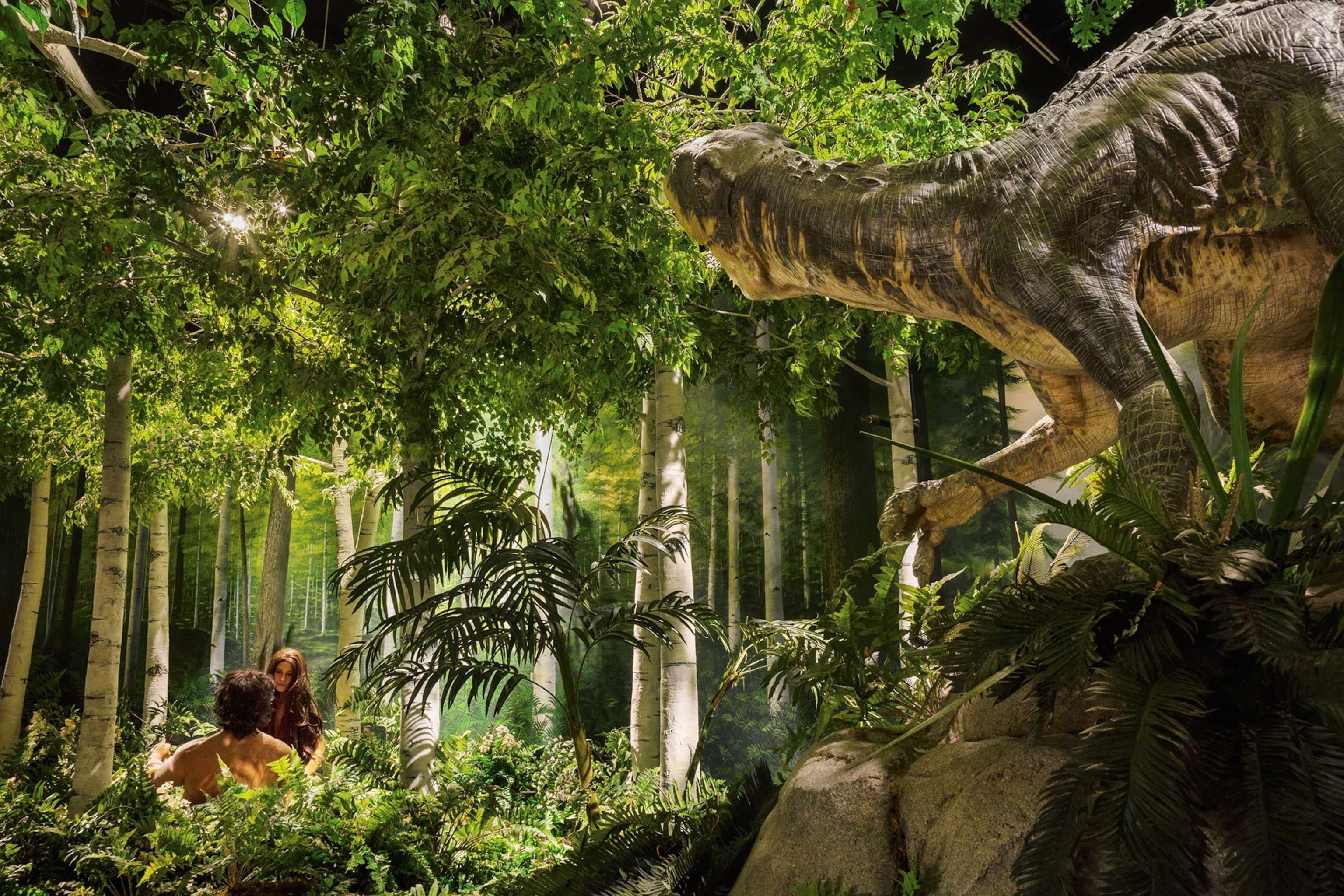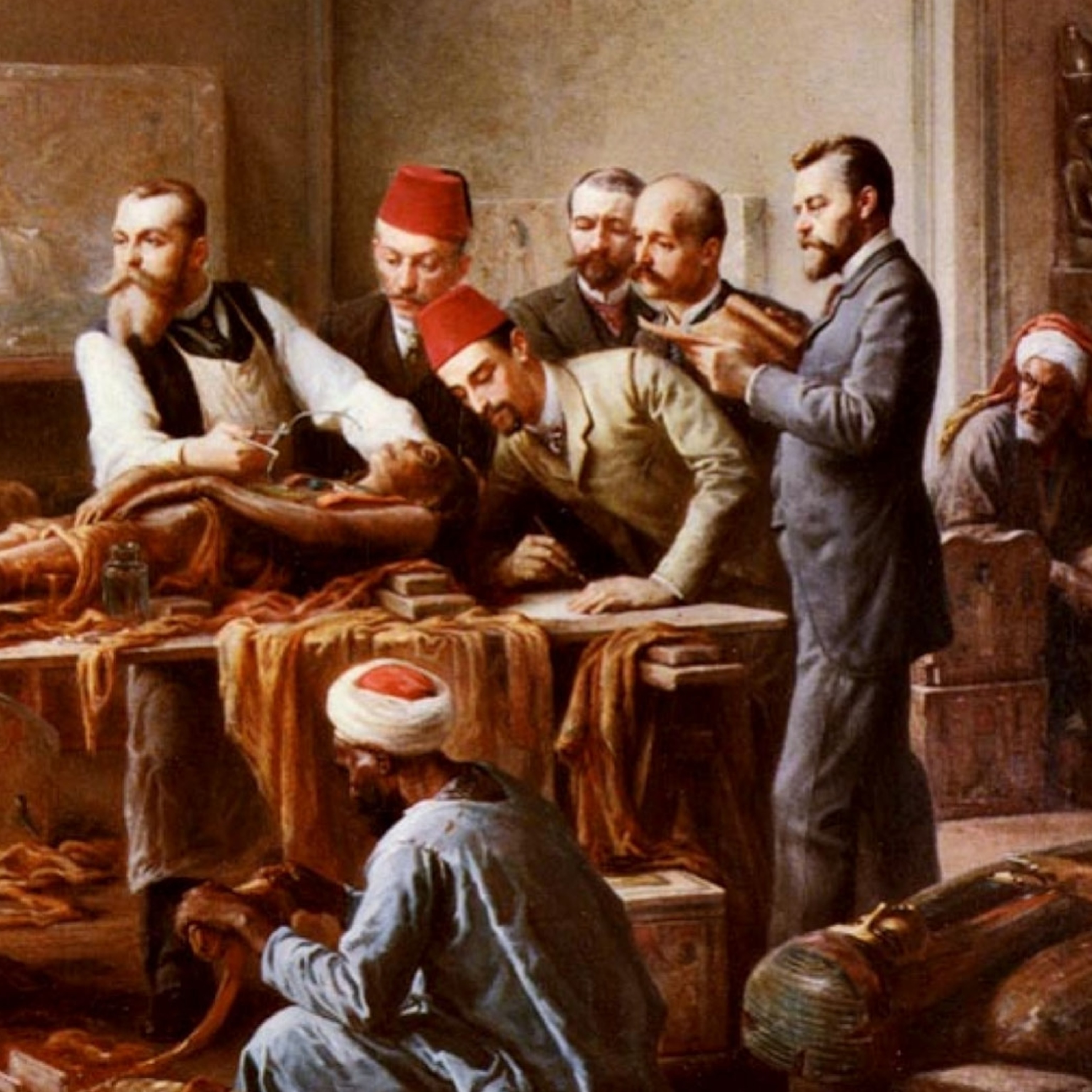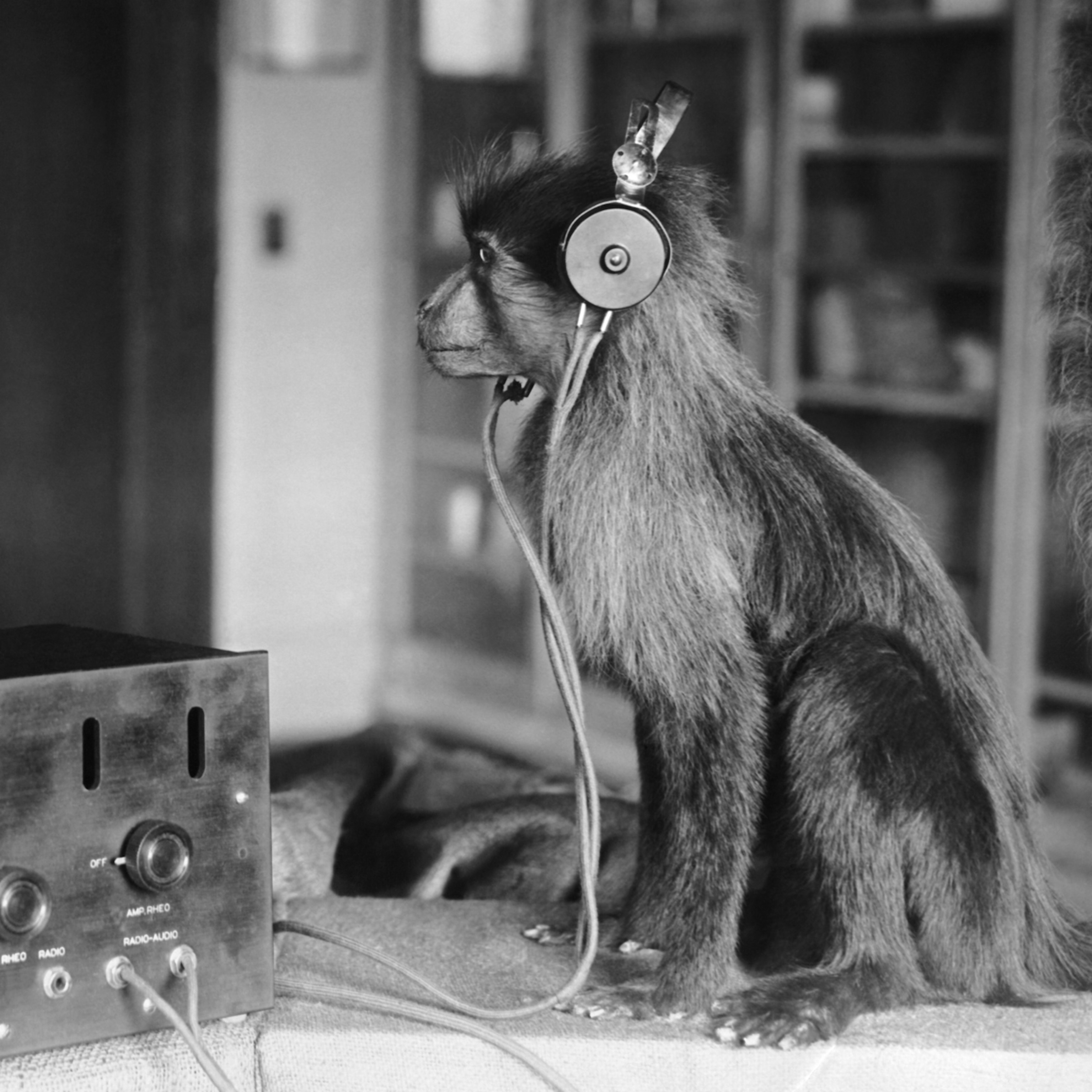
In Age of Science, Is Religion 'Harmful Superstition'?
God is not only dead, author avers. He never lived. Not to mention the deaths of kids treated with faith instead of science-based medicine.
Jerry Coyne, author of Faith vs. Fact: Why Science and Religion Are Incompatible was in high school listening to the Beatles’ Sgt. Pepper’s Lonely Hearts Club Band album when he had an epiphany: God does not exist. The thought terrified him. But his subsequent work as a geneticist and evolutionary biologist gave him a scientific foundation for his teenage conversion.
Talking from the University of Chicago, where he is a professor in the Department of Ecology and Evolution, he explains why new scientific discoveries are undermining the claims of religion; why Stephen Jay Gould was wrong; and how U.S. law is not doing enough to protect children from being martyrs to their parents’ faith.
Your journey towards atheism started with an epiphany, at age 17, listening to the Beatles’ Sgt. Pepper’s album. Take us back to that moment.
I was raised as a reform Jew, which is a hair’s breadth from atheism. We went to synagogue, but I didn’t do Bar Mitzvah. Occasionally, God would be mentioned, especially when I was a bad boy. [Laughs] I was in high school when the Sgt. Pepper’s album came out. I was lying on my parents’ couch listening to this new album and all of a sudden it just popped into my mind that everything I’d been taught about God and religion had no evidence behind it. I started sweating, but not because of the heat. I always thought there must be an afterlife. And the sudden realization that that probably wasn’t true made me start shaking and sweating. Ever since then I’ve been an atheist.
(This Halloween, Bone Up on Animal Superstitions)

You are now an evolutionary geneticist. How does your day job inform your views on religion?
If you teach evolution, you’re teaching the one form of science that hits Abrahamic religions in the solar plexus. You can teach chemistry and physics and physiology and other forms of science-based inquiry, like archaeology and history, and religious people don’t have any problem with that. But, for evolution, they do.
About 42 to 43 percent of Americans are creationists. Another 30 percent are theistic evolutionists, who think that God impelled the evolutionary process. This is an uptick of about 50 percent over the last 20 years.
But there are a number of things about evolution and science that undermine religion. First of all, the fact that the Genesis story is wrong. There’s no evidence that there’s any qualitatively different feature about humans from other species, except maybe for language. But that’s something that could have evolved via culture. We’re not special products of God’s creation.
How have new developments in science like neurobiology or cosmology affected our understanding of the universe and our place in it?
They support what Steven Weinberg, the Nobel laureate in physics, said: “The more we learn about the universe, the more we realize how pointless it is.” We’re learning a lot about the universe and what we are seeing is that it’s all a naturalistic process.
One of the theories about how the universe came to be, the big bang theory, is that it happened naturally in a quantum vacuum. That undercuts religion right there [Laughs]. People say, “You can’t get a universe from nothing. You’ve gotta have God.” But you can, if you conceive of nothing as the quantum vacuum of outer space.
Another is free will: the idea that at any point in time all alternatives are open to us. This is the dualistic free will maintained by religions when they say you can choose to accept Jesus as your savior, or being homosexual is a choice. Science is starting to undercut this, by showing that there’s only one choice we can make, which is the output of our materialistic brains. We are creatures of physics, made of molecules. Therefore, our thoughts and behaviors are also the results of molecular motions.

In a nutshell, why are religion and science incompatible?
They’re incompatible first of all, because they both compete to find truths about the universe. There are some fundamental truths about the universe that believers have to accept in order to be religious. Many Muslims see the Koran as literally true. To question any of that is to bring a death sentence on yourself. The reason why people are so concerned with harmonizing science and religion, as opposed to, say, science and architecture, or science and baseball, is because science and religion are competitors in the field of esoteric truths about the cosmos.
But we use different methods to ascertain what’s true. Science has an exquisitely refined series of methods honed over 500 years to find out what’s real and what’s false. Richard Feynman gave the best definition of science I ever heard, “It’s a way to keep you from fooling yourself, because you’re the easiest person to fool.” Religion doesn’t have a methodology to weed out what’s false. In fact, it’s a way of fooling yourself. They have authority, revelation, dogma, and indoctrination as their methods and no way of proving their tenets false.
There are thousands and thousands of religions and all of them make incompatible claims about the universe. The reason that that’s the case is because they don’t have any way of testing those claims.
You call religion “the most widespread and harmful form of superstition.” Make your case.
One of the meanings of superstition in the Oxford English dictionary is a belief that is unfounded or irrational. Since I see all religious belief as unfounded and irrational, I consider religion to be superstition. It’s certainly the most widespread form of superstition because the vast majority of people on Earth are believers. Other forms of superstition, like astrology, belief in UFOs or telekinesis, are nowhere near as widespread. And the damage that religion has done to humanity is far more than the damage that astrology or the belief in Bigfoot has done. This is the problem with ISIS and other Islamist organizations. It used to be the problem with Christianity, as well. People get killed because they don’t share your beliefs.
Are all religions as bad as each other?
Oh, no. I think anybody that says that is on some tendentious gambit to discredit religion. Clearly, religions differ in how harmful they are and that’s proportional to how much they proselytize and how perfidious their beliefs are. There are religions that I would consider either harmless or maybe even beneficial. Quakers barely believe in God at all and are dedicated to social justice. The less a religion has to do with a tangible God, the less it hands out moral dictates and the better it is. Once you believe in an absolute authority that tells you what to do, you’re heading down the road to perdition, I think.

The evolutionary biologist, Stephen Jay Gould, developed a theory known as NOMA (Non-Overlapping Magisteria), in which science encompasses the domain of facts about the universe, while religion deals with the realm of meaning and moral values. Isn’t that a compromise you accept?
Well, no! [Laughs] It’s not only a compromise I can’t accept. It’s a compromise that’s been rejected by most theologians, who insist that morals and values be anchored in statements about how the universe is. In that sense, they’re opposed to the limitations of religion that Gould set for them. Philosophers have also rejected Gould’s idea that meaning, morals and values are the purview of religion. There’s a long tradition of secular humanism in philosophy beginning with the ancient Greeks and passing through Kant, John Stewart Mill and Hume to contemporary thinkers like Peter Singer. So, on both counts, I think NOMA fails.
A purposeless, purely physical universe, in which human life is accidental and human consciousness is what you call “a neuronal illusion,” is a bleak vision, isn’t it?
I suppose it might be to some people. I live with it and most Europeans live with it. It’s a vision that there’s nothing beyond the laws of physics and matter. Whether you find that bleak or not depends on your psychological constitution. Are people in Scandinavia or France dragging their heels with their heads down because they find a life without God bleak? No. In fact, you could make the opposite claim. For many Muslims fun is not allowed. Music is prohibited. I would find that kind of life far bleaker than a life without God.
One of the most moving sections of your book is about Ashley King. Tell us her story and how it illustrates the dangers of religion?
It illustrates the dangers of what I call, “vertical proselytizing faith,” where you enforce your beliefs of religion on your kids when they’re too young to know otherwise. This religion is Christian Science, in which disease is seen as having spiritual causes. Christian Scientists reject science-based medicine in favor of prayer and spiritual healing.
Ashley King was the daughter of two well-off Christian Scientists in Arizona. Not the toothless Bible thumpers you think of when you think of fundamentalists. Ashley developed a lump on her leg, which turned out to be bone cancer. Instead of taking her to a doctor, they took her out of school and tried to treat her with prayer. The lump eventually got to be as big as a watermelon. Child services finally took her away from her parents.
Ashley went to the hospital and the doctor said, “It’s too late. This tumor’s too big. But we can give her some time by amputating her leg.” Her parents refused and stopped her being given pain-killing medicine.
Instead, they put her in a Christian Science sanatorium, which, by the way, is subsidized by the U.S. government. Her medicine consisted of giving her water and prayer. She started shrieking and crying out. The thing was incredibly painful. But all they did was pray. Finally, she died.
Her parents were prosecuted and convicted, but they were only given unsupervised probation. In 43 out of 50 American states, faith healing that harms your children is not a civil or criminal problem. Thousands of kids have died through Christian Science and the Followers of Christ in Oregon and Idaho. There are graveyards filled with dead kids who were given faith healing.
Do you have a spiritual life? If so, what does it look like?
Spiritual is an amorphous term. I study evolution and every day I read something that strikes me as amazingly wonderful. If you call that spiritual, then, yeah, I’m spiritual. Richard Dawkins says the same thing. Spirituality can run the gamut from amazement at nature to a feeling that there’s something beyond the material universe.
But I don’t like the use of the word “spiritual” unless you define it clearly. I am spiritual in the sense that I have this awe and wonder before nature. I love James Joyce and T.S. Eliot, I’m moved by Dylan Thomas. It doesn’t have anything to do with God. It has to do with a commonality of feeling prompted by nature and the arts. So I prefer to use the word humanist rather than spiritual. The minute you say you’re spiritual, people automatically start thinking you’re religious.







